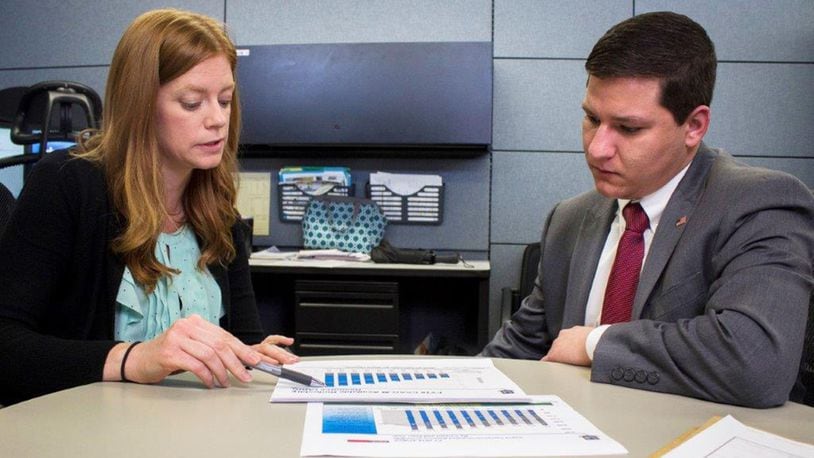NDEAM dates back to 1945 when Congress declared the first week in October “National Employ the Physically Handicapped Week.” It was meant to celebrate the contributions of workers with disabilities and to provide education about the value of having an inclusive workforce.
“People with disabilities often have many obstacles to overcome on a day-to-day basis, and they approach these problems with a unique and different perspective. We need this creative problem-solving trait in the Air Force so we can produce the best warfighting expertise, develop the cutting-edge technology, remain agile against our adversaries and maintain air superiority,” said Fore.
At Wright-Patterson, the Workforce Recruitment Program, led by Fore and her team, ensures the spirit of the NDEAM is met throughout the year.
Workforce Recruitment Program
The WRP for College Students with Disabilities was established in 1995 as a partnership between the U.S. Departments of Labor and Defense. It connects public and private-sector employers with postsecondary students and recent graduates who are eager to prove their talents and skills in the workplace through summer internships, which will potentially lead to permanent jobs.
An accountancy major at Wright State University, Matt Moore secured an internship position at Wright-Patterson through the WRP program.
“I have dyslexia and ADHD, which make reading, and learning in general, really hard for me,” said Moore. “I always knew that I was going to have to work harder than the next guy, just to perform as well as the next guy, and I’m OK with that.”
Moore was introduced to the WRP, and to Fore, through Wright State’s office of disability services.
“I actually met Matt last fall,” said Fore. “Once I talked to him I knew I had to find a good place for him.”
Fore was able to help Moore secure an internship at AFMC’s Financial Management Division’s Working Capital Fund. In September Moore was hired into a permanent position.
“Matt has a very strong will to learn,” said Stephanie Hilgeford, the Working Capital Fund’s chief. “What surprised me the most is how laser focused he is on his work, doing analysis and finding the root cause of a financial issue. That is unique from someone who is fresh off the street.”
Moore stressed to others in the disability pool to seek out opportunities such as the WRP program.
“I want people with disabilities to know that they have a resource out there,” said Moore. “There are people that want them to succeed, and that they can succeed.”
— Contributions from previous reporting were by Karina Brady and Benjamin Sanders
About the Author
